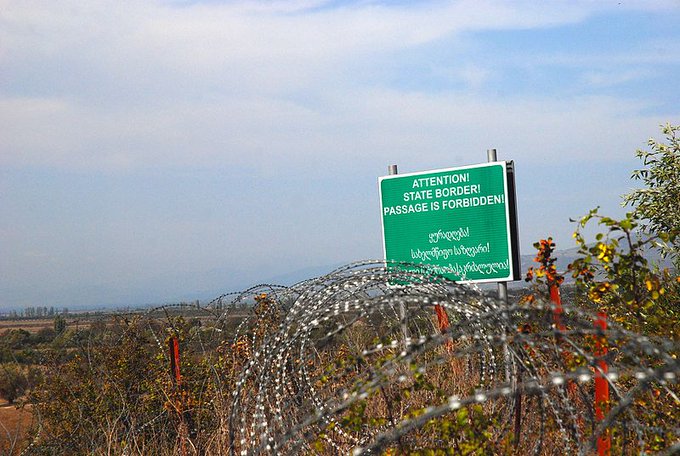Discussing Statehood and Secession on YouTube
Late last year, I set up a YouTube channel focusing on secession and state creation. I had been thinking about it for a while, but finally took the plunge at the end of October. Almost five months later, here are some initial thoughts on the experience.
First of all, it’s perhaps worth explaining why I wanted to make videos – as opposed to maybe setting up a blog or creating a podcast, or not even bothering at all.
In large part, it was driven by an understanding that the way in which people take in information is undergoing a profound transformation. Fewer and fewer people are engaging with written material. There is a definite shift to audio-visual forms of learning. Some are responding to this by producing podcasts. (This is a great option for many people as the equipment costs are low. Also, it feels a lot less exposed than sitting in front of a camera.) The other alternative was to make videos. This is the route I wanted to take as it felt a better fit for me. I have done a lot of television interview over the years and so I thought I would feel relatively comfortable in front of a camera. (This is not true, as it turns out. Frankly, speaking in front of a camera with no one at the other end to prompt you is a profoundly odd experience and takes a lot of getting used to.)
In addition, I really liked the creative aspect of making videos. Learning the process seemed like an interesting challenge. What I did not realise until I got started was just how difficult it actually is. You are suddenly confronted with having to develop an entirely new set of very diverse skills. I had to learn about videography, lighting, sound, editing, graphic design (needed for channel art, titles, video cutaways and thumbnails), and search engine optimisation. This can all seem very daunting. However, I also found it incredibly interesting and, dare I say it, fun. Fortunately, there are so many brilliant channels and videos out there providing tutorials for beginners. Also, there is a wonderful sense of community amongst people doing YouTube; largely because they know how tough it is to do. I must say that I now have complete respect for anyone else who gives it a go.
One of the things that all the experienced YouTubers will say to anyone starting out is that you have to have a particular focus (a ‘niche’) and you have to know your audience. While the two points may seem related, and obviously do have a high degree of crossover, they nevertheless need to be considered separately.
In terms of my niche, the decision to focus of secession was not immediately obvious. There were in fact two distinct paths I could have taken. My main geographical area of specialisation is South East Europe. However, for several reasons I didn’t want to focus on this. A major factor was that I felt that my videos would necessarily gravitate towards current affairs if I focused too heavily on the region. This sort of material doesn’t have a long shelf life on YouTube. It is perhaps better suited to podcasts, which are incredibly popular for many people on their daily commutes to and from work.
Instead, I wanted something that have a longer lasting value. (What is called ‘Evergreen content’ in YouTube parlance.) For this reason, I felt that it would be better to focus on my main thematic area of scholarly research: state creation, secession, recognition and de facto states. Of course, the advantage of this is that it would give me some outlet to do videos on South East Europe (Cyprus, Bosnia, Kosovo, North Macedonia, etc. However, and this is what I really liked the idea of, it would also let me do pieces on other conflicts; Kurdistan, Catalonia and Scotland. Here was a chance to explore other cases of secession and separatism elsewhere. More to the point, it would also be a great chance to focus on some of the conceptual and theoretical issues underpinning secession and state creation, such as issues relating to statehood and the origins of countries, joining the UN, and even how states become extinct.
Then there was the question of who I wanted to make videos for? Of course, it is nice to think that you can make content for everyone. However, that isn’t how it works. As you sit in front of the camera it is often good to visualise who you think is sitting on the other side of the lens. Who is your ideal viewer? I felt that there were three groups that I wanted to appeal to.
In the first instance, I really wanted to make videos for people involved in secessionist disputes in one way or another. Over the years, I have met so many people who have not really understood the dynamics of international politics. For example, I kept meeting people who, incorrectly, seemed to believe that the principle of self-determination gave them a right to independence. What they didn’t understand is that the concept of self-determination has two very distinct meanings in international politics, and that this only confers a right to statehood in very specific contexts. At other times, someone would insist that a particular territory shouldn’t be allowed to become independent but seemed unable to explain why not. What was it about that territory that made it so imperative for their country to retain it at all costs?
The second target group was students studying politics and international relations. In many ways, this is the most natural demographic group for YouTube. Although the platform is gaining in popularity in people beyond their mid-forties (a group I now find myself in), the bulk of viewers are in their twenties and thirties. Again, they are also the generation that increasingly turns more to videos than to books for information.
Finally, I wanted to try to appeal to a general interest viewership. There are a lot of people out there who are genuinely fascinated about secessionist conflicts and de facto states and are keen to learn more about them. To this end, I have always tried to make sure that my videos appeal to an educated and informed viewer, but not necessarily a specialist audience of fellow academics.
So, what have I got out of the experience? A huge amount, as it happens. It has been a fascinating experience. One thing I would say is that it is hugely time consuming. People say this, but you don’t realise until you start. Even a 6-7-minute video can take a couple of days work. Still, I have really enjoyed the sense of achievement that comes with putting together a video. Of course, they don’t have the highest production values and can appear very amateurish. But it is a learning curve (and a steep one at that). As people in the community say, the goal is to make sure that each video improves on one thing from the last one; whether that is lighting, sound, editing, graphics, or presentation style. Your first videos will necessarily be bad. But even after a few months you will hopefully see some improvement.
Would I recommend it? Absolutely. However, I also understand that it will not be for everyone. Quite apart from a willingness to learn so many new skills, and have the time to be able to do it, you need to have a thick skin. You will receive personal comments, some extremely hateful. Fortunately, unlike most other social media platforms, you can delete comments and block people. This helps a lot. Also, when dealing with such a contentious topics, you will also find that the comments section of a video can sometimes become a proxy conflict zone. My video on Bosnia and the possible secession of Republika Srpska is a great case in point. A trawl through those comments can be quite something.
Another point to consider, which sadly puts many academics off, is that there are some within the scholarly community who seem to look down on things like blogs, podcasts and videos. I have met other academics who have started on YouTube who feel that colleagues are sneering at them or mocking them. This is really depressing in this day and age. As educators, we should be looking to engage with audiences as effectively as possible. In truth, such behaviour says more about the people doing the mocking than the ones who have tried to give it a go.
Still, for the most part, the responses I have had have been overwhelmingly encouraging. I am always really appreciative when someone takes the time to comment and say that I have helped them to understand a particular issue. As scholars, this is what we’re here to do. It is wonderful to have that recognised. I think there really is a lot of interest in the topic and many people seem to genuinely welcome learning about the legal and political principles that underpin questions of statehood and sovereignty, especially if they are personally close to that issue. Already, I have had some brilliant discussions.
Moreover, as well as hopefully being able to teach people about some of the most interesting issues in international politics, it has also been a wonderful chance to learn about those issues from people in the countries, territories and de facto states in question.
Author: James Ker-Lindsay






